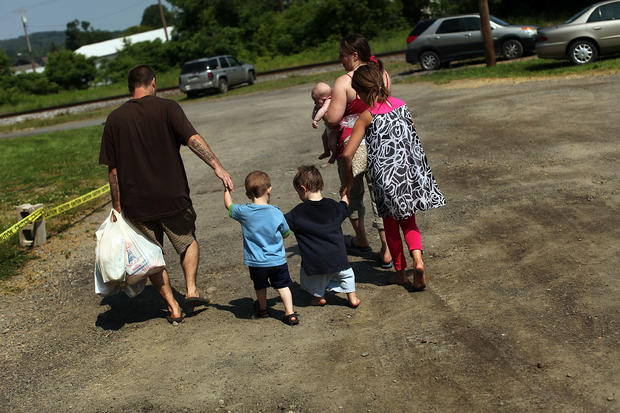The rich get richer, and the poor get...
After enduring the gloomiest post-recession recovery in U.S. history, American families are finally seeing a ray of economic light.
In 2015, the proverbial 99 percent enjoyed the fastest inflation-adjusted growth in their income since 1998, according to an analysis of federal tax data by University of California, Berkeley economist Emmanuel Saez. Incomes for those households rose 3.9 percent from the previous year, the study found.
Time to break out the champagne? Not quite. The research, published by the Washington Center for Equitable Growth, shows that Americans still haven't regained the ground they lost in the epic downturn that followed the 2008 financial crisis.
Notably, it also highlights that a corrosive defect in the economy -- inequality -- is getting worse. Saez found that the top 1 percent of income earners continue to outperform the rest of American families, with the richest workers enjoying income gains of 7.7 percent last year.
"After a large decline of 11.6 percent from 2007 to 2009, real incomes of the bottom 99 percent of families registered a negligible 1.1 percent gain from 2009 to 2013, and then grew by 6.0 percent from 2013 to 2015," he wrote in a research note. "Hence, a full recovery in income growth for the bottom 99 percent remains elusive."
Although the recession ended six years ago, the bottom 99 percent of income earners have recaptured only about 60 percent of their losses due to the crisis, he added.
The wealthiest Americans seem to live in another reality. Incomes for the top 1 percent jumped 37 percent from 2009 to 2015, reaching roughly $1.4 million last year. While the bottom 99 percent saw gains, they were relatively paltry in comparison -- a 7.6 percent increase during the same period helped lift the average income to $48,800 last year.
"This uneven recovery is unfortunately on par with a long-term widening of inequality since 1980, when the top 1 percent of families began to capture a disproportionate share of economic growth," Saez said.
The issue of inequality in the U.S. has flared during the presidential race, revealing a cultural and economic pressure point that the candidates have tried to address in various ways. Americans' view of the economy is partly tied to the health of their paycheck, and many are still struggling with stagnating income, especially those who lack college degrees.
Efforts in recent years to use tax policy to narrow the gap between rich and poor have yet to start paying, or at least not as much as President Obama hoped with a 2013 reform aimed at boosting tax rates on the richest Americans.
"The latest data from the IRS suggests the 2013 reforms proved to be fleeting in terms of reducing income inequality," Saez noted. "There was a dip in pre-tax income earned by the top one percent in 2013, yet by 2015 top incomes are once again on the rise -- following a pattern of growing income inequality stretching back to the 1970s."
